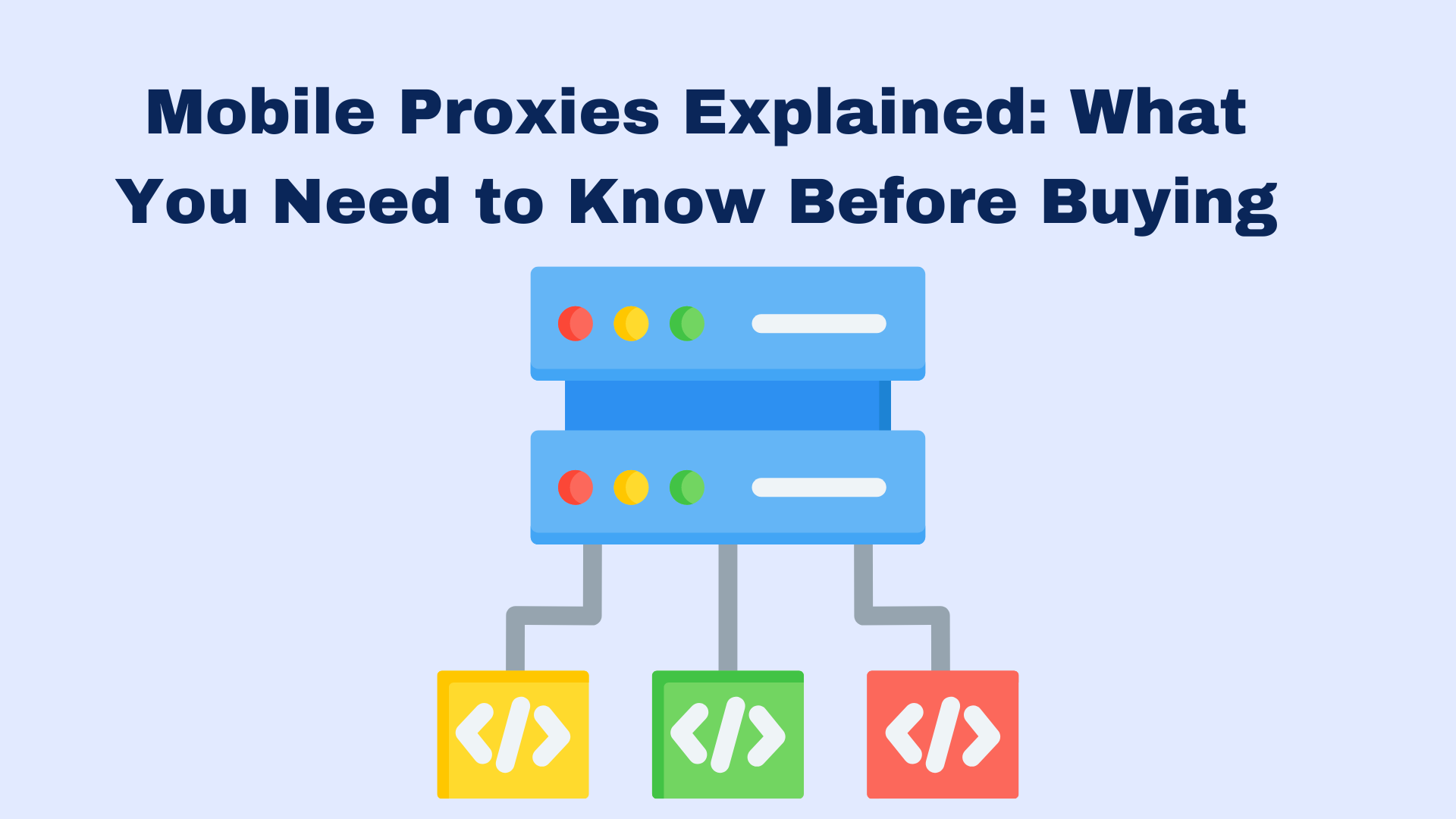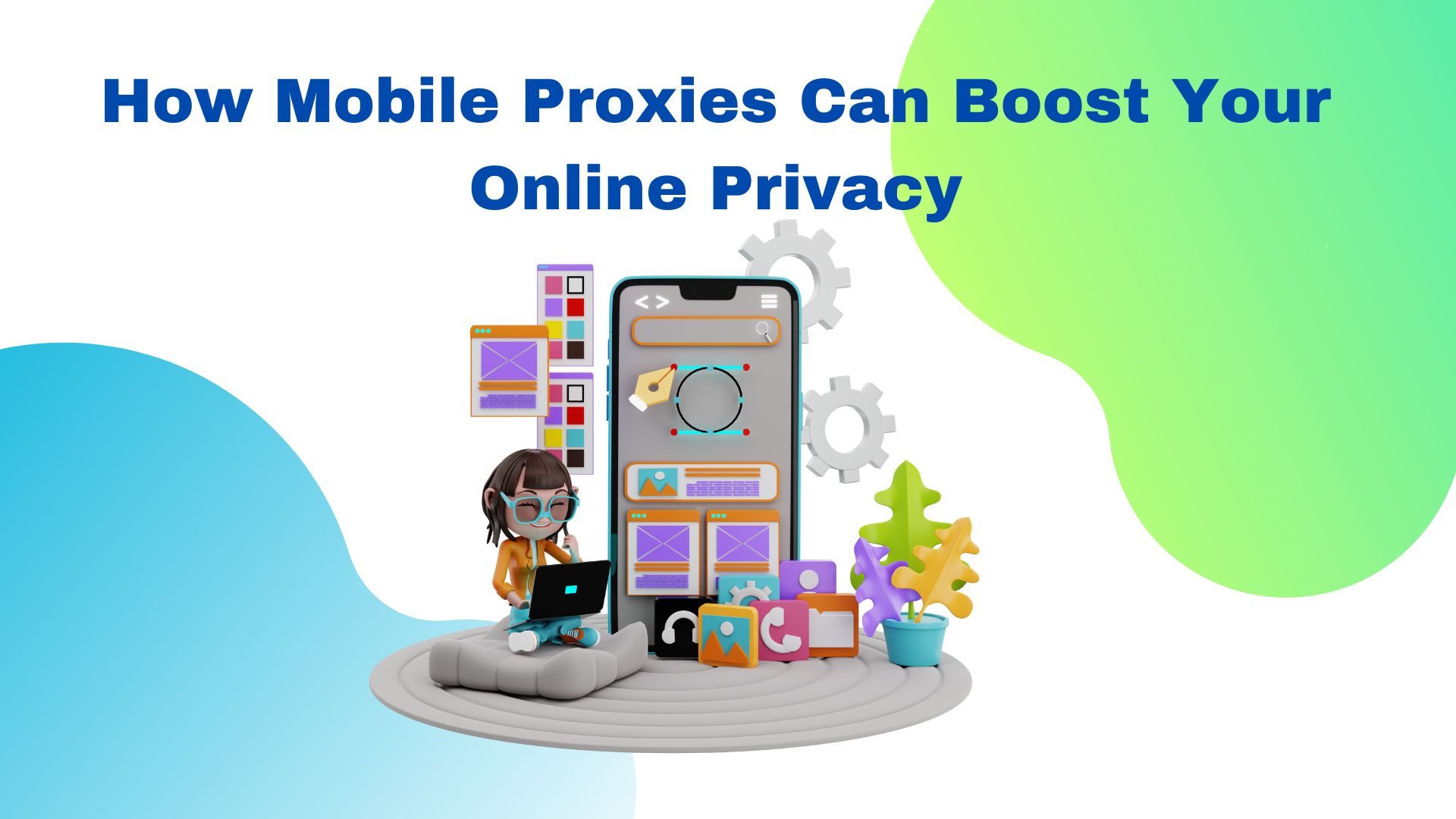Mobile proxies are a specialized type of proxy server that routes internet traffic through mobile devices connected to a 3G, 4G, or 5G network. This method of routing makes them highly effective for tasks that require a high degree of anonymity and credibility, such as web scraping, social media automation, ad verification, and bypassing geo-restrictions. Before buying mobile proxies, it’s essential to understand how they work, their advantages and disadvantages, and what to consider when choosing the right provider.
What Are Mobile Proxies?

A mobile proxy assigns your internet traffic an IP address belonging to a mobile carrier. Unlike data center or residential proxies, which are linked to fixed broadband connections or servers, mobile proxies utilize real mobile devices on cellular networks. This distinction is crucial because websites often trust mobile IPs more due to their natural appearance and association with legitimate human users. Mobile proxies are less likely to be flagged or blocked compared to other types of proxies.
How Mobile Proxies Work
- IP Assignment: When you connect through a mobile proxy, your traffic is routed through a mobile device (like a smartphone or tablet) that is connected to a mobile network (such as Verizon, AT&T, or Vodafone).
- IP Rotation: Many mobile proxy services offer rotating IPs, meaning the IP address assigned to you changes periodically. This further reduces the risk of detection and blocking, as your traffic appears to originate from different real users at different times.
- Network Diversity: Mobile proxies can come from various countries and regions, allowing you to simulate traffic from specific locations to access geo-restricted content or gather localized data.
Advantages of Mobile Proxies
- High Trust Level: Since mobile IPs are considered more legitimate, they face fewer restrictions and are less likely to be blacklisted or blocked by websites.
- Rotating IPs: Frequent IP rotations provide higher anonymity and make it difficult for websites to identify patterns that might suggest automated behavior or scraping.
- Bypassing Restrictions: Mobile proxies are highly effective at bypassing IP-based restrictions, CAPTCHAs, and firewalls, making them ideal for tasks like web scraping and accessing geo-restricted content.
- Effective for Social Media: Social media platforms, such as Instagram, Facebook, and Twitter, are sensitive to IP-based activities. Mobile proxies mimic real users, reducing the risk of bans when automating social media management tasks.
Disadvantages of Mobile Proxies
- Higher Cost: Due to their effectiveness and the resources required to maintain them (real mobile devices and data plans), mobile proxies are more expensive than residential or data center proxies.
- Limited Bandwidth: Mobile proxies often come with data caps or higher costs for unlimited plans, making them less suitable for high-bandwidth activities.
- Variable Speeds: Since mobile proxies rely on cellular networks, speeds can vary based on network congestion, location, and signal strength, potentially affecting performance.
- Ethical and Legal Considerations: Some mobile proxies are created through potentially unethical means, such as rerouting traffic through unwitting mobile users’ devices. It’s essential to choose a reputable provider that operates transparently and adheres to legal and ethical standards.
What to Consider When Buying Mobile Proxies
- Provider Reputation: Always choose a provider with a solid reputation for reliability, transparency, and ethical practices. Look for reviews and testimonials from trusted sources.
- Geographical Coverage: Ensure the provider offers proxies in the locations relevant to your needs, whether for accessing localized content or simulating regional traffic.
- Pricing Plans: Understand the pricing structure—some providers charge by bandwidth usage (GB), while others may offer flat rates for unlimited bandwidth. Determine which model suits your use case.
- Rotation and Session Control: Consider how often the IPs rotate and if the provider offers sticky sessions, which allow you to maintain the same IP for a set period. This feature is useful for tasks that require a consistent IP address.
- Customer Support: Reliable customer support is crucial, especially if you encounter technical issues or require assistance with setup and integration.
- Security and Privacy: Ensure the provider does not log your activities and offers robust security features, such as encryption and IP masking.
- Use Case Compatibility: Different tasks require different types of proxies. For example, web scraping might require rapid IP rotation, while managing multiple social media accounts could benefit from sticky sessions with a few dedicated IPs.


